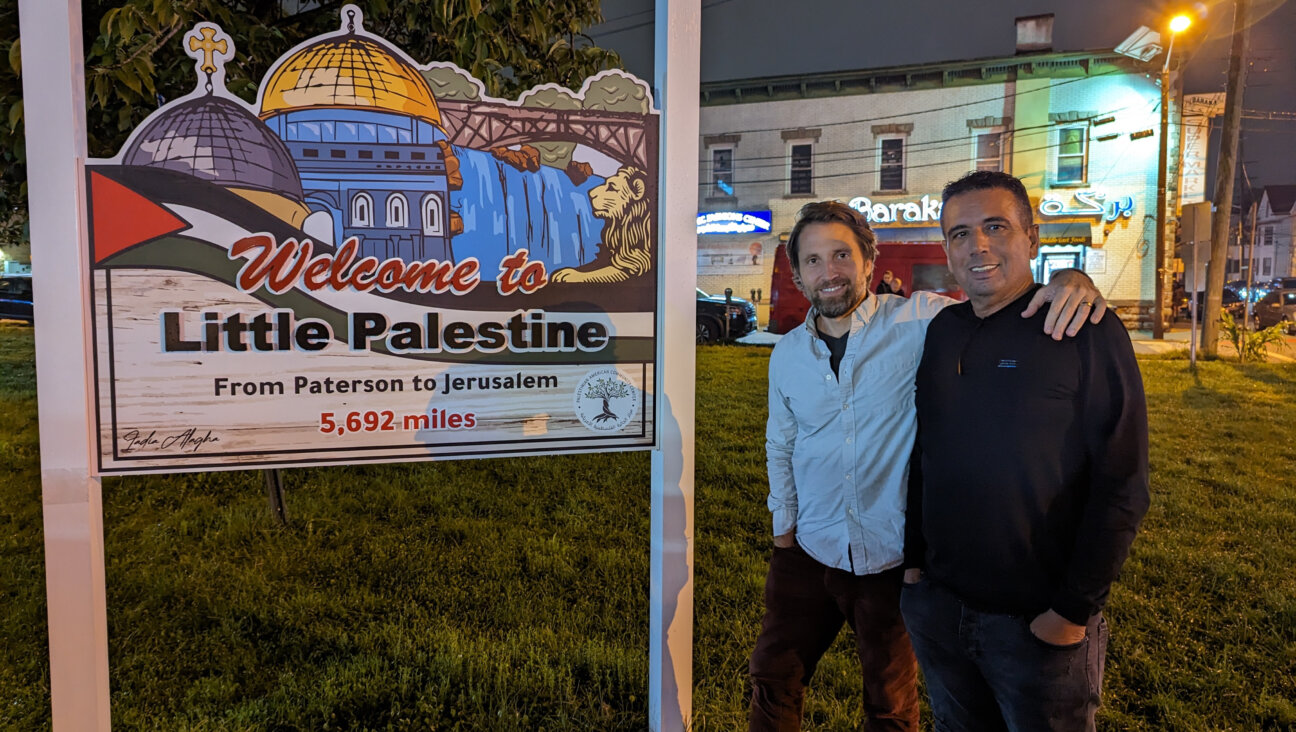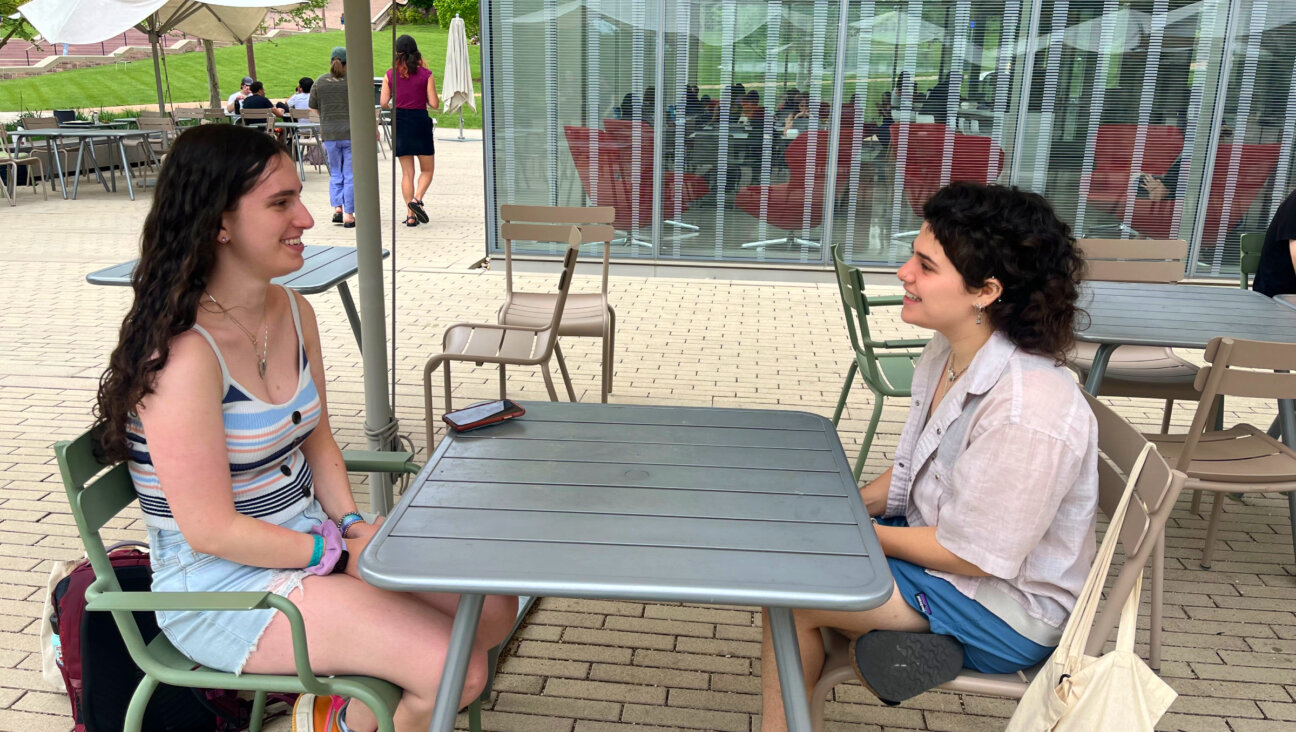Being Ourselves By Being For Others
There is a Hasidic allegory in which a rebbe explains why the stork, known in Hebrew as the hasidah, is characterized as a non-kosher animal. At the outset of his homily, the rebbe observes that the stork is labeled the hasidah (the merciful one) because the kindness and compassion this animal displays for its own kind is unlimited. However, the rebbe goes on to point out that precisely because the stork reserves these traits only for its own, the stork must always be defined as treyf. He concludes that the Jew must always extend compassion and mercy to all.
This parable is particularly instructive given the recent controversy that has erupted over the decision by United Jewish Communities, the roof body for North American federations, to appropriate a percentage of the special donations it has collected to help Israel recover from this summer’s Hezbollah rocket attacks to Israeli Arabs and Druze. Certain sectors of our American Jewish community have made it known that they regard such disbursements to Israel’s Druze and Arab sectors — who suffered from these attacks as did Jews — as improper.
To be sure, Jewish tradition does instruct Jews to grant priority to fellow Jews as our community attempts to make the values of hesed (mercy) and tzedakah (righteousness) present in the world. After all, resources and capacity are not unlimited. The Talmud therefore teaches, “A member of one’s household takes precedence over everyone else. The poor of one’s household take precedence over the poor of one’s city. And the poor of one’s own city take precedence over the poor of other cities.” A Jew is obligated first and foremost to assume responsibility for his or her household, and a Jewish community is required to do the same for its own members when it cares for persons in a time of need. This talmudic passage reflects the ethical concern Judaism has for the family and for the Jewish people, and it bespeaks the importance our tradition assigns our own community in the Jewish hierarchy of values. As Hillel phrased it, “If I am not for myself, who will be for me?”
At the same time, Hillel quickly went on to say, “But if I am only for myself alone, what am I?” Jewish tradition balances the particularism present in the teachings cited in the preceding paragraph, and requires Jews to apply the foundational Jewish values of righteousness and mercy to all humanity. Thus, Maimonides writes, “One ought to treat the resident stranger [non-Jew] with derekh eretz [civility and humanity] and hesed [mercy and kindness] just as one does a Jew, for we are commanded to support them.” Jews are instructed to recognize that all persons are created in the Divine image, and they must treat all people with respect and care. Maimonides therefore continues by stating that Jews are required to “bury [gentile] dead along with the dead of Israel, and support [gentile] poor among the poor of Israel.” In a particularly inspiring commentary, Maimonides justifies his position by citing a passage from Psalms 145:9, which states, “God is good to all and His mercy is on all His works.” Our obligations as Jews extend to all humanity, and these obligations ought to be appropriately reflected in our concern for all who dwell in our midst.
For Jews to behave with kindness and justice toward gentiles constitutes as act of what Jewish tradition labels kiddush hashem, the sanctification of the Divine name in the universe. Indeed, the Jerusalem Talmud, explicitly links acts of righteousness and kindness by Jews toward gentiles with the concept of kiddush hashem. God is made holy through the deeds of the people Israel as our community displays a concern for all those in need — gentiles and Jews. As the late chief Sephardic rabbi of Tel Aviv, Hayyim David Halevi, phrased it in his Jewish legal writings, “The Jewish people possesses an obligation to conduct itself towards those who are residents in its midst with integrity and fairness. In so doing, we will sanctify the Name of Heaven and the name of Israel in the world.”
Rabbi Abraham Isaac Kook, the first Ashkenazic chief rabbi of British Mandatory Palestine and one of the great spiritual mentors of our time, summed up this position well when he wrote, “The love for Israel entails a love for all humankind.” In displaying concern for Jews and gentiles alike through its recent actions, UJC has conducted itself in accord with the highest elements in our tradition. This act of hesed deserves praise, not critique.
Rabbi David Ellenson is president of Hebrew Union College-Jewish Institute of Religion.

I hope you appreciated this article. Before you go, I’d like to ask you to please support the Forward’s award-winning, nonprofit journalism during this critical time.
Now more than ever, American Jews need independent news they can trust, with reporting driven by truth, not ideology. We serve you, not any ideological agenda.
At a time when other newsrooms are closing or cutting back, the Forward has removed its paywall and invested additional resources to report on the ground from Israel and around the U.S. on the impact of the war, rising antisemitism and the protests on college campuses.
Readers like you make it all possible. Support our work by becoming a Forward Member and connect with our journalism and your community.
Make a gift of any size and become a Forward member today. You’ll support our mission to tell the American Jewish story fully and fairly.
— Rachel Fishman Feddersen, Publisher and CEO
Join our mission to tell the Jewish story fully and fairly.























